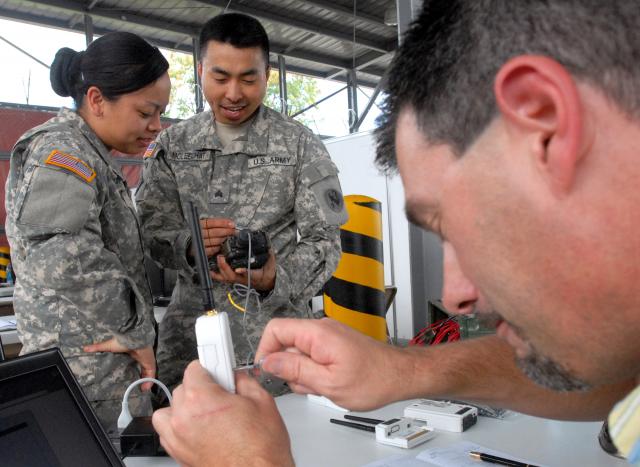The U.S. Army Pacific Contingency Command Post went wireless March 28 during its certification exercise, or CERTEX, at Clark Air Base, Philippines.
The Contingency Command Post, or CCP, is conducting its CERTEX before the command post exercise during Balikitan 2011, a bilateral exercise held annually in the Philippines between U.S. and Philippine forces.
The CCP consists of 96 personnel who provide a forward command post capability to USARPAC, specifically focusing on small-scale contingencies such as supporting humanitarian assistance, disaster relief and peace operations.
“This is the first time the (Department of Defense) approved connection to classified and unclassified networks wirelessly. This will greatly reduce the time it takes to set up our networks during contingency operations and will greatly reduce our footprint because we won’t need all of the cabling ,” said Maj. William Macugay, CCP communications and information network officer and deputy G-6. “We can cut eight to 10 hours of cabling down to a lot less than half that using wireless.”
Going wireless the CCP will be able to get information back to USARPAC leadership quicker, possibly resulting in Army forces in the Pacific getting help to those in need more quickly during contingencies and disasters.
“We’re de-tethering, instead of being limited by the cabling. You are now mobile, so you can move around in the operating area seamlessly,” said Bart Robinson, one of the several civilian contractors assisting the Army communications team at Clark. “Using off-the-shelf 802.11 wireless technology the team is feeding encrypted classified information over an unclassified network,” added Robinson.
This may raise some eyebrows, but Robinson says it’s secure.
“We’re wrapping encryption in encryption. If somebody tried to intercept the data, it would take literally millions of years for them to decrypt the information,” he said.
Macugay says that although it will make things easier in the long run, in the short term it’s going to require more training for his signal Soldiers and those assigned to the CCP.
“Once we work out the bugs, everyone else in the Pacific will look to us as the guys to follow when they go wireless,” Macugay said.










